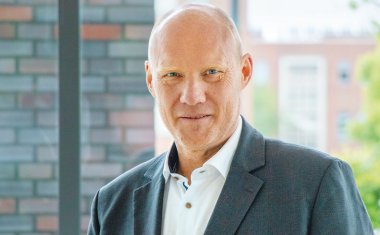Danger Prevention at Infraserv Höchst
Covering an area of 4.6 square kilometers, the industrial site Infraserv Höchst, Germany, is a veritable ‘town within a town’. It has its own railway, its own harbor, and its own fire brigade. Ninety chemical and pharmaceutical companies are located here that together employ some 22,000 people. Infraserv Höchst’s business is location development, and they are experts in the provision of chemicals-related services. The Danger Prevention department of the Site Management division is headed up by Linda Voigtländer. GIT SECURITY spoke with her.
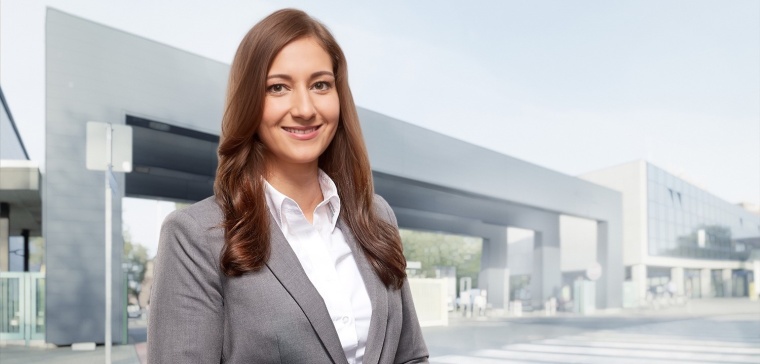
GIT SECURITY: Ms Voigtländer, many thanks for taking the time for this GIT SECURITY interview. As head of Danger Prevention at Infraserv Höchst you must have a lot to do. How did you become involved in this department?
Linda Voigtländer: Thank you for the invitation to be interviewed – I am very happy to tell you about this very multifaceted job. The ‘Industriepark Höchst’ in Frankfurt am Main is like a town within a town, with its own energy supply, a medical center and a fire brigade, a harbor and a railway. The 4.6 square kilometer industrial park houses over ninety companies with around 22,000 employees. As the operator of the whole park, Infraserv Höchst provides many infrastructure services so that the chemical and pharmaceutical companies can concentrate on their core business. We supply energy and raw materials, look after waste disposal and environmental protection, provide a logistics infrastructure and a wide spectrum of security services.
My danger prevention department belongs to the site management division that is responsible for danger prevention (GA), public infrastructure, as well as other general services within the Industriepark Höchst.
How is the whole organization structured?
Linda Voigtländer: The danger prevention organization is divided into prevention and intervention (company fire brigade, emergency management and danger prevention control center). The purpose of Infraserv‘s integrated danger prevention organization is the protection of people, systems and the environment within the industrial park. My department includes the company security operation, visitor and badge management, investigation and special services, security technology, and project management. We have around 150 staff who cover an extensive range of services. Some of our main tasks are the organization of access passes, carrying out vehicle and pedestrian access checks, handling logistics processes, and helping the integrated alarm and danger prevention organization of the Industriepark Höchst. Then there are security patrols, documenting and processing criminal acts within the area, carrying out anti-espionage measures, as well as legal and data protection-conformant handling of the resultant information exchange with the local police and customs authorities. We also carry out prevention work through consultancy, training and awareness campaigns for companies and their employees with the goals of preventing crime and the early recognition of weak points, as well as the administration of operation of the security systems.
How long have you been working in the security department? Could you tell us about your previous jobs? What fascinated you about the subject of security?
Linda Voigtländer: Even as a child I actually wanted to be involved in security, best of all wearing a police uniform. Upon considering the matter closely, after my graduation I decided to follow a path to become a specialist on protection and security. In 2006, I moved from the Mecklenburg Lake District to Frankfurt am Main, where I took part in an assessment program and afterwards started my three-year training at Infraserv Höchst. I had the opportunity during this time to work in all the security-relevant departments. Amongst others, I worked on the day and nighttime shifts of the company security department, in the investigation service, at visitor reception and in the security technology departments too.
When I finished my training, I was first working for company security at the main entrance gate. I gathered experience with SAP and a number of other commercial processes. During this time, I studied security management and qualified as a Bachelor of Business Administration with the support of a Chamber of Trade bursary program that covered part of the costs.
In 2017, I took over my first management position at Infraserv Höchst as head of company security with 100 staff. I was very lucky to have a very experienced colleague at my side who supported me a great deal. This was certainly an exciting challenge for me. Some people may have thought: “Look, that was our former trainee.” But, after a short while, the new constellation was working so well that I could take over responsibility for the entire operation, and have maintained that position since 2020 as head of the whole danger prevention department.
How do you rate the security situation at Infraserv Höchst at the moment? What dangers are currently the most urgent for you? Do you see any trends in this respect?
Linda Voigtländer: We have a hybrid danger situation right now. The most urgent matters are protecting the critical infrastructure, cybercrime, forging of identity documents, sabotage, illegal access (handing over ID media, perimeter intrusion), the theft of goods in transit and theft of precious metals. We also observe the general security situation and policies, and deduce the appropriate measures from them.
We have noticed a trend in the forging of ID documents. We use modern document-checking devices and can identify falsified identity documents, which we report to the police. This has already led to numerous arrests. We have noticed that the threshold for criminal activity is sinking, and we are therefore continuously increasing our activity to make our employees aware of this (personal protection, tactical methods, etc.)
Infraserv not only secures the site in Höchst, but it also provides facility management and safety and security solutions for other companies. Is that all managed from your department, or how does that work?
Linda Voigtländer: Our Facilities Services at Infraserv Höchst have their own division that is active in various regions of Germany and provides facility management services for customers, primarily in the chemical and pharmaceutical industries. The same applies to our environmental, certification management, logistics, occupational safety or industrial medicine services, just to name a few. The experience of our security specialists is also valued. We advise many customers, both within and beyond the industrial park, and we are also operational for these companies.
In addition to the services I already mentioned that we deliver as operator of the site, we also support companies with property protection, the online surveillance of HVAC or other systems, consultancy on the subject of fire protection or IT security, for example. This list is also not complete by a long way; the portfolio of services is much more extensive and varied.
One of the gates is currently being completely rebuilt. Could you describe the project? How will the new gate be different from the old one?
Linda Voigtländer: The building work is necessary to renew parts of the equipment and further improve the security level. The new road surface will be suitable for heavier vehicles, also for heavy goods transport. We are increasing efficiency of the security measures at the gates and will also be able to reduce the staffing levels. Although we will be reducing costs, we are also reacting to the dearth of qualified personnel. We are an attractive employer that has much to offer, but it is becoming increasingly difficult to fill vacant posts quickly. We will continue to use security kiosks that allow us to process vehicles in both directions. The southern gate will also be rebuilt in a more customer-friendly design, including wheelchair access.
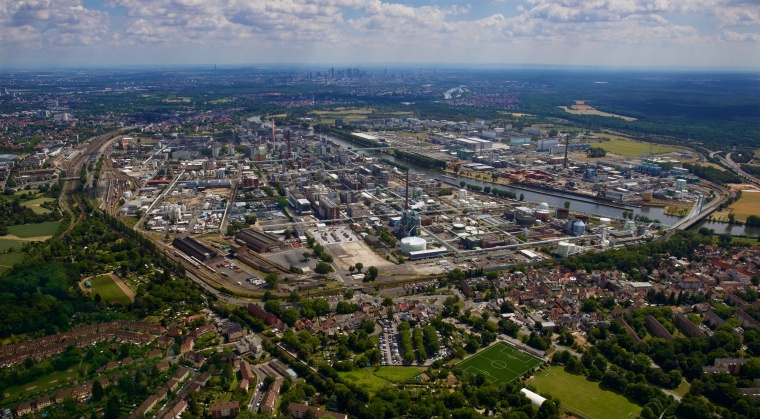
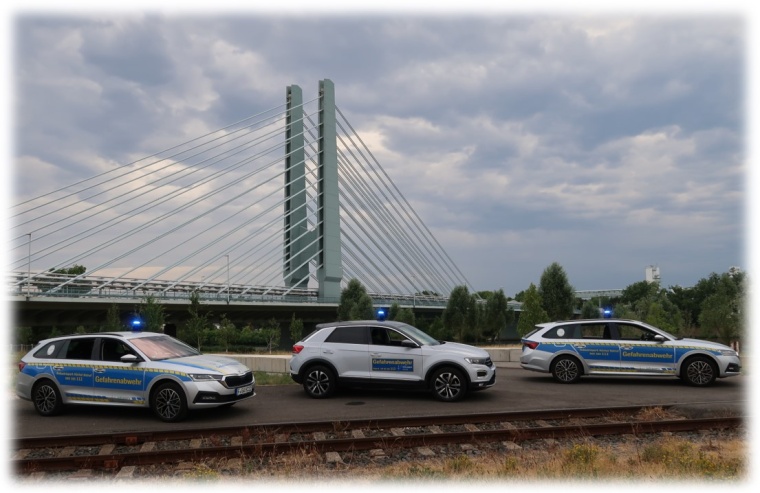
Let us stay on the subject of access: as in many aspects of security, digitalization is important for visitor access, the registration process, the safety advice, etc. How is that implemented here?
Linda Voigtländer: That is correct. Various projects have led to the implementation of digital solutions for access control and we are continually developing these further. For example, they include the purchase of self-check-in visitor terminals and logistics processes. The terminals will carry out a biometric check of the person and their ID document, and generate the necessary access documents. And to minimize the waiting time, we will also extend our online pre-registration process. The safety training that is necessary for access to the Industriepark has anyway been available online for a long time.
Do you also use external service providers? What is your philosophy?
Linda Voigtländer: All our staff are our own employees. That ensures a consistent high quality and minimizes the level of fluctuation. Some of our staff have been with us for many years and gained a lot of experience, which is very valuable in such a complex environment as the Industriepark. Of course, we also suffer from the lack of qualified personnel and the demographic change and invest a lot of effort in new employment. Luckily, our own subsidiary, Provadis, the largest training company in Hesse, is well equipped for this. Provadis has been successful for more than 25 years, also in recruiting trainees who are trained in more than forty occupations to a very high level. The company had taken on 640 new trainees at the beginning of the business year, among them 87 Infraserv trainees. We also have long-established relations with various service providers and work with external partners as necessary in total confidence.
Let us talk about a few current projects, for example the matter of drones. How are they used by Infraserv?
Linda Voigtländer: Drones are already used in various areas, for example by the fire brigade, for environmental protection to gather measurement data, by the facilities services to observe installations (the condition of buildings), but also by our security division to discover the best location for permanently installed cameras (field of view checks).
You are currently investigating partially automated drone flights. How does that work and what is the purpose?
Linda Voigtländer: Yes, we are working on a project called ‘Drone-supported perimeter protection’. Partially automated drone flights means that the drone will start and land automatically, and follows pre-defined flight routes to carry out perimeter surveillance. Any deviation from the expected behaviour raises an alarm. The video is transmitted to the security center. The drone pilot is always a trained local employee who can take control, if necessary. Other future uses can include support during emergencies, for example by fitting the drone with a thermal camera. Our safety and security personnel can be assisted when an intruder alarm is activated, for our own protection and for illumination by LED lights. Drones might also be used when there is a traffic accident, to take photos for example. There will also be new functions in automatic detection with the support of AI technology.
Drones flown by other people are not only a potential threat for companies and locations like yours. How do you rate this problem and what is your strategy here?
Linda Voigtländer: We watch the drone protection market and use the currently available solutions. There is of course a danger here, but we are already well equipped with our perimeter surveillance systems.
Another one of your current projects: you want to stop using digital two-way radios and introduce push-to-talk technology – that is, using mobile phone networks to deliver voice messages. Why have you taken this decision, how is the project organized and what is the status?
Linda Voigtländer: Analog mobile radio has no future from our point of view. Data is not sufficiently encrypted, the range is limited because of the radio cell constellation, and the standard is out-of-date. With push-to-talk – the combination of three devices into one mobile device: pager, mobile radio, and mobile phone into a smartphone – there is no dependency on limited self-operated radio cells. The range is unlimited (limited only by the reach of the public cellular network), WLAN links can be used, and the device is more compact. We are in a test phase at the moment and are working on optimizing the interface to our security center. GPS tracking will be possible, and the forwarding of status messages like in the old analog emergency services network is currently being implemented.
What is on the agenda for the forthcoming year?
Linda Voigtländer: As you can see, we have so many projects that next year certainly won’t be boring. Of course, we are continuously working on digitalization opportunities and continuing to develop our skills.
Many thanks for the conversation,
Ms Voigtländer.
Business Partner
Infraserv GmbH & Co. Höchst KGIndustriepark Höchst, Gebäude C 770
65926 Frankfurt am Main
Germany
most read

Integrated and Futureproof: Traka’s Next Chapter
Interview with Stefni Oliver on Traka’s Vision for the Future
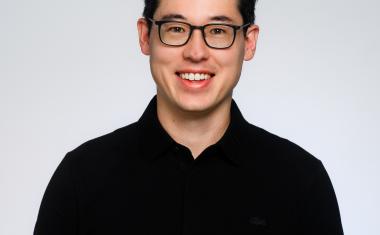
Between War and Peace: Hybrid Attacks and Their Impact on Critical Infrastructure
FOCUS TOPIC GERMANY - Hybrid attacks and drones: Security risks for Germany, its companies and critical infrastructure.


Assa Abloy's battery-powered Aperio KL100 secures lockers
Boost workplace security and operational flexibility by securing more than just doors.

Safety and Security in an Emergency: How companies take responsibility with strategic personal protection and amok prevention
Personal protection & amok prevention: strategic concepts, training & responsibility for corporate safety and security

